![]() Hello, gentle readers, and welcome to the RPG Reload, the weekly feature where we all know at least one mysterious girl. Each week, we take a look at an RPG from the App Store’s past to see how it holds up in the here and now. It’s a chance to revisit old favorites, reflect on their place in the overall iOS landscape, or simply to take a deeper dive than our reviews typically allow. I try to select a balanced plate of RPGs from week to week in order to reflect the diversity of the genre, but if you feel like I’m missing something important, please let me know. You can do that by commenting below, posting in the Official RPG Reload Club thread in the forums, or by tweeting me at @RPGReload. You might not see your suggestion soon, but it will be added to the master list.
Hello, gentle readers, and welcome to the RPG Reload, the weekly feature where we all know at least one mysterious girl. Each week, we take a look at an RPG from the App Store’s past to see how it holds up in the here and now. It’s a chance to revisit old favorites, reflect on their place in the overall iOS landscape, or simply to take a deeper dive than our reviews typically allow. I try to select a balanced plate of RPGs from week to week in order to reflect the diversity of the genre, but if you feel like I’m missing something important, please let me know. You can do that by commenting below, posting in the Official RPG Reload Club thread in the forums, or by tweeting me at @RPGReload. You might not see your suggestion soon, but it will be added to the master list.
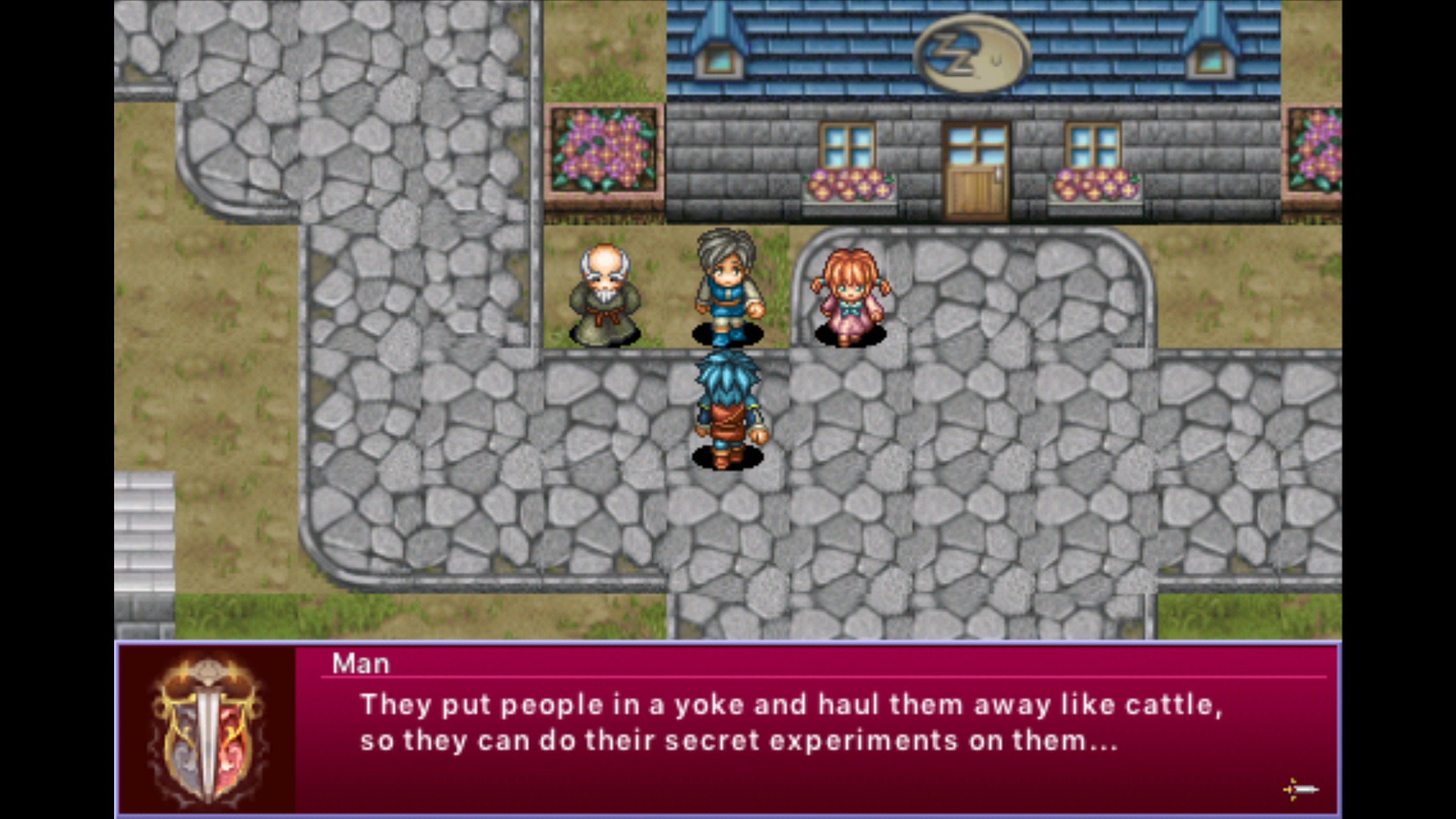
I never quite know what to do with Kemco as it pertains to the RPG Reload. On the one hand, they are without question the most prolific publisher of RPGs on the App Store. Not even Square Enix can come within a hair’s breadth of the total number of games Kemco has released over the years. Every month or two since their arrival on iOS, players could look forward to a new, complete single-player RPG adventure. While they often incorporate IAP, I’m yet to play a single one of their games that requires it. In the worst cases, you might miss out on a couple of optional dungeons. Their adherence to traditional JRPG releases in an era where social RPGs dominate is both rare and admirable. Probably terrible for business, but I’m not going to complain.
On the other hand, it’s a genuine case of quantity over quality. Kemco’s games are the convenience store cheeseburgers of the RPG world. They might not taste the best, but they’re cheap, reasonably filling, and readily available when there are no other options. Even with four different developers, the frequency of releases means games start to bleed together in one’s mind. Don’t ask me to remember the names of 95% of the Kemco games I’ve played, even the ones I’ve reviewed. I won’t be able to do it. Which I suppose cuts to the heart of what a Kemco RPG actually is and why they’re not particularly well-suited for this kind of article. The games they publish are competent but almost entirely forgettable. That’s not to say they’re bad games. Some of them certainly are, but an almost equal number probably would have been hailed as cult classics had they released in another time and place. But memorable, they are not.
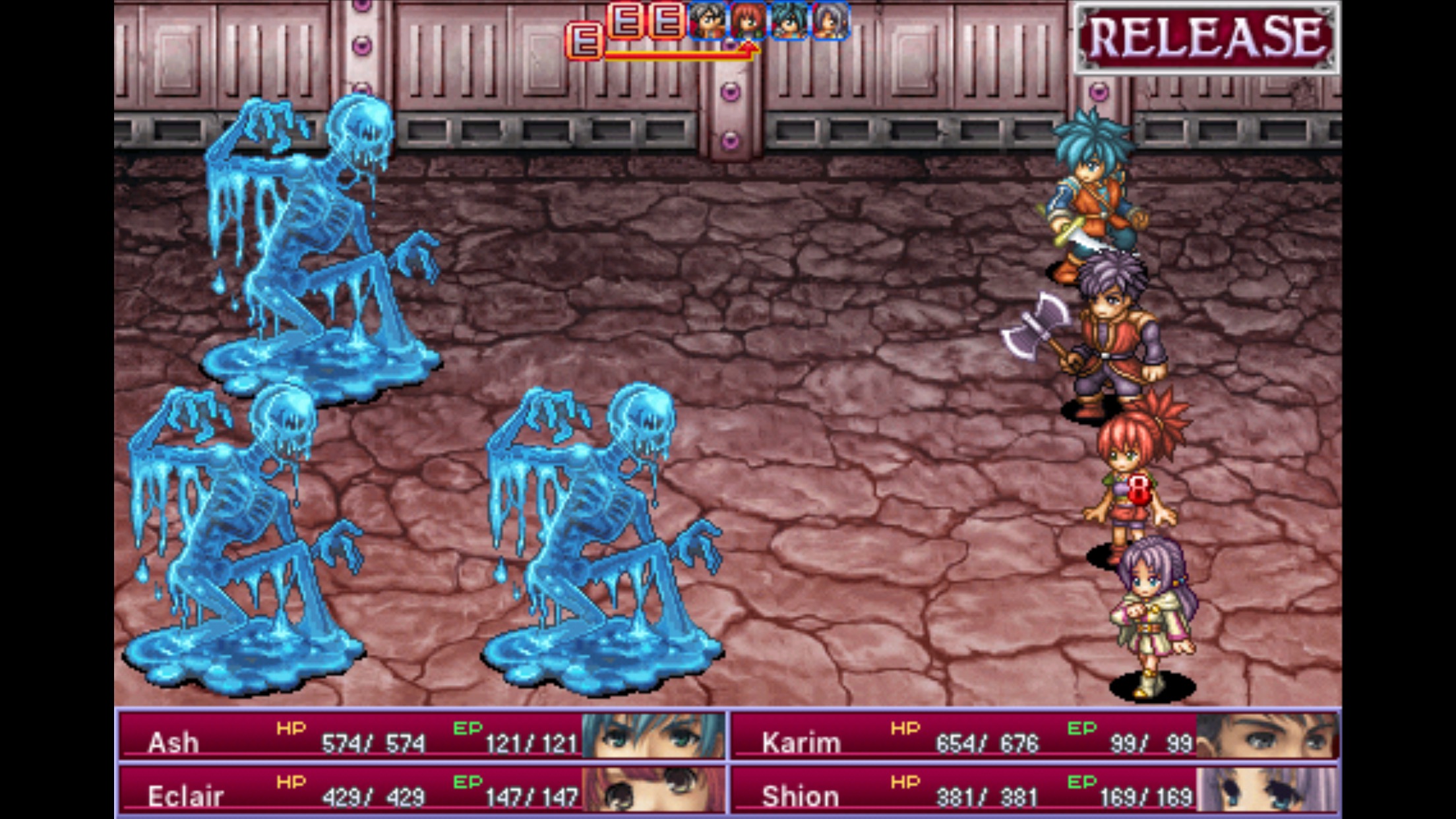
Still, I feel obligated to give them a shout-out in the RPG Reload every now and then. We’ve looked at Fantasy Chronicle before, one of their earliest releases on the iOS platform and the first English release from developer Hit-Point. I’d recommend reading that RPG Reload for a run-down of Kemco’s history. Today, we’re going to be looking at an even earlier release than that game. Alphadia ($3.99) is a remake of one of Kemco’s feature phone releases in Japan. The original game was one of their more popular titles, spawning four sequels over the course of five years. As one of Kemco’s earlier iOS releases, the remake of Alphadia had little competition and proved to be a similar stand-out success. A remake of the second game was prepared for smartphones, after which the series went dormant for a while before being revived with the first original smartphone release in the series, Alphadia Genesis ($9.99). It’s developer EXE-Create’s first English mobile release through Kemco, and the series on the whole is the longest for both the developer and the publisher, numbering seven installments.
Granted, it’s a pretty loosely-connected series. While not entirely separate the way the Final Fantasy games are, the stories in the Alphadia games are meant to stand alone. There are common elements from game to game, particularly the reoccurring character Enah, but very few open acknowledgements of the events that happened in the other Alphadia games. This is probably for the best, since it seems unlikely smartphones (and therefore English gamers as a whole) will ever get remakes of Alphadia 3 through Alphadia 5. It’s not as though the stories and worlds are worth connecting, really. The setting of Alphadia is basically a generic fantasy world where magic equals power and everyone fights with melee weapons anyway. There are a few sci-fi twists that mostly involve Enah, but it’s pretty clear that the thinking behind the series didn’t go much farther than “like Final Fantasy, but not". Still, for the price they sell for, there’s a fair bit of entertainment to be had from Alphadia, as with just about all of EXE-Create’s smartphone offerings.
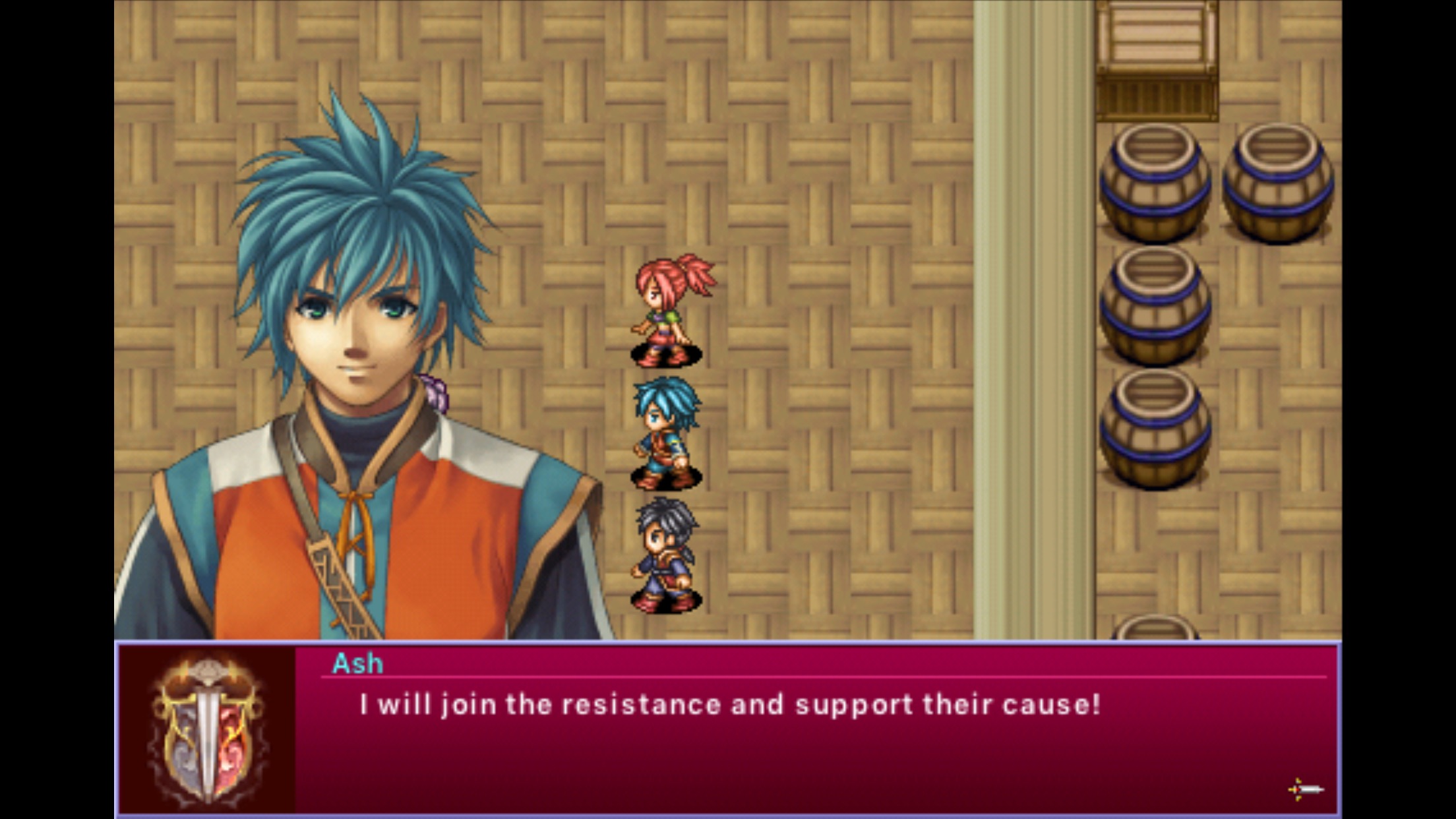
Alas, even EXE-Create’s origins are ground we’ve already covered before. Please check out the RPG Reload for Across Age if you want the lurid details. Otherwise, here’s the short version. Kemco is a software-focused spin-off of a large Japanese company that largely produces ship parts and industrial machinery. They began making games back during the 8-bit NES boom, but like many companies couldn’t seem to keep up with things as sprites gave way to polygons. They moved their struggling business over to mobile phones, flooding Japan’s feature phones with tons of bite-sized RPGs. When smartphones arrived and the worldwide market started to look ripe, Kemco kept on doing what they had been doing, finding a small but comfortable niche as an RPG publisher on iOS and Android. As for EXE-Create, they’re a very small developer formed largely of ex-IREM employees who left the company in the mid-90s. Before hooking up with Kemco, they were best known for their Ys knock-off series Frane. While they’ve gone with different partners from time to time, EXE-Create is largely connected at the hip with Kemco these days.
EXE-Create’s games are not generally all that ambitious. While their stablemates try out unusual mechanics or try to flip the script in some way or another, EXE-Create simply keeps on iterating on a very traditional design. That probably makes a lot of sense when the games have such a short development time. While other Kemco RPG developers often try wacky ideas that fail and get discarded, EXE-Create just keeps on refining. Not very exciting stuff, but it does mean that their games have gotten better and better over time. Unfortunately, this means that Alphadia, as one of their earlier works, definitely feels like something from another era of the company. The original version of the game is nearly a decade old by now, and even the remake is going to be celebrating its fifth birthday this year. It’s kind of a funny thing. The constant flow of vaguely similar releases from Kemco can often make it feel like the games aren’t changing at all, but comparing one of their oldest releases to one of the newer ones from the same developer shows some interesting changes over time. There’s a fair bit of progress in terms of technology and mechanics, of course, but more than that, comparing two games separated by so many years also reflects some changing values in the Japanese game industry.
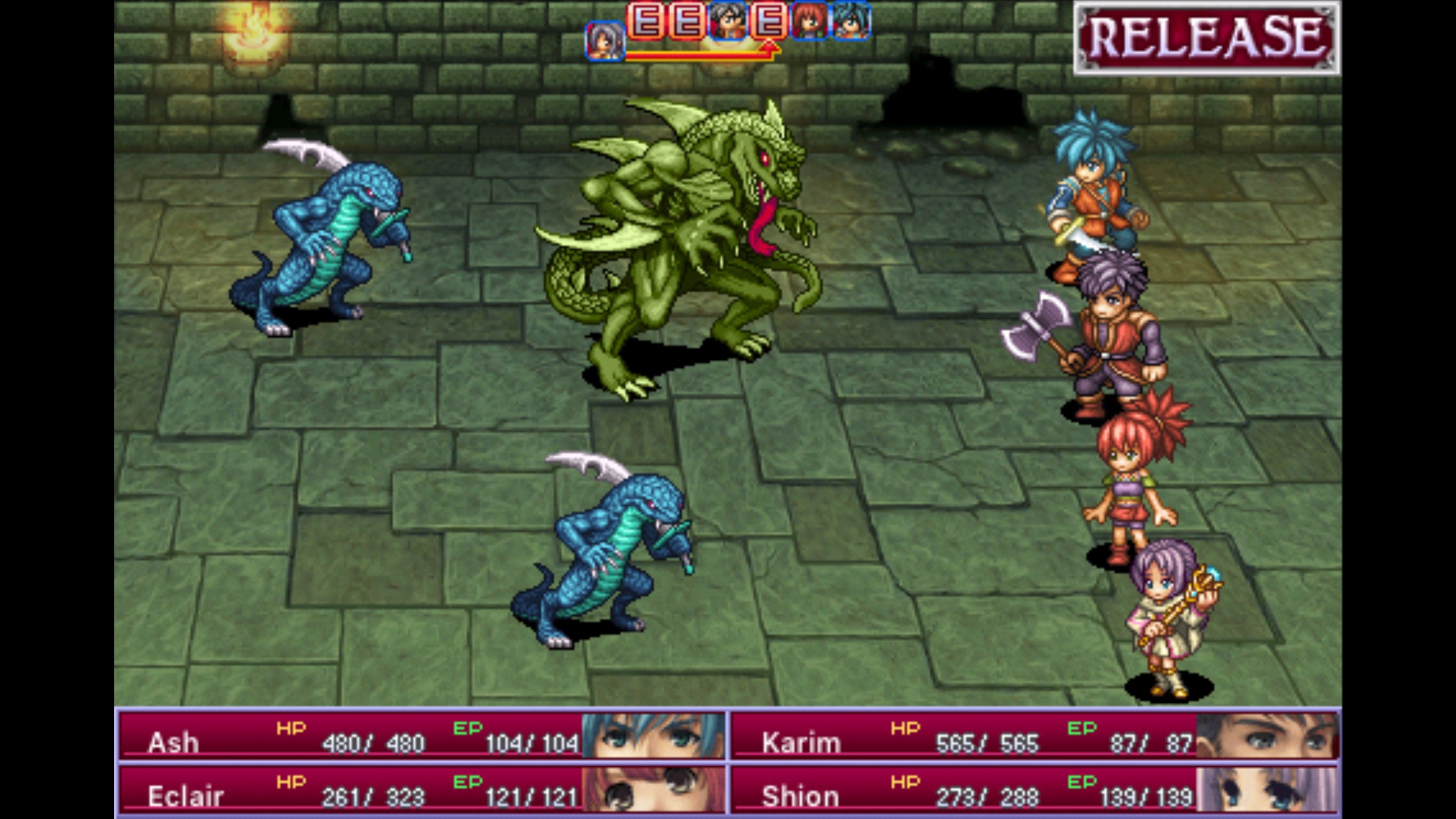
Alphadia‘s story is heavily littered with JRPG tropes. There’s an evil empire with a mysterious force behind it, a plucky group of rebels who court your help, a young girl with mysterious powers, a princess pretending to be a commoner, and so on. The main plot wasn’t terribly interesting the first time I played the game, and it’s not really any better now. While the translation is still miles ahead of its contemporaries, EXE-Create ended up coming a very long way in that department. There are some clever lines, and the whole thing obviously has a native English speaker’s hand in it, but there are also a lot of typos and some generally awkward bits of phrasing. Sharp localizations have always been one of the bright spots of EXE-Create’s games, helping fill out characters that are otherwise a little too generic. Even with its flaws, comparing the English script for Alphadia to Fantasy Chronicle‘s demonstrates a night and day difference.
Enjoyable character interactions are usually the lifeblood of EXE-Create’s games, or at least their better ones. I’m not sure if it’s the weaker localization or a consequence of the original Japanese script, but Alphadia doesn’t have a lot of entertaining conversations. The party members in particular are too dry with each other. There are several really funny NPCs, but that only goes so far when the main cast is so bland and conflict-free. The hero, whose name is Ash, is particularly dull. He’s basically that ultra-helpful young guy type. You can have some fun bouncing certain types of characters off of that kind of template, but that never happens here.
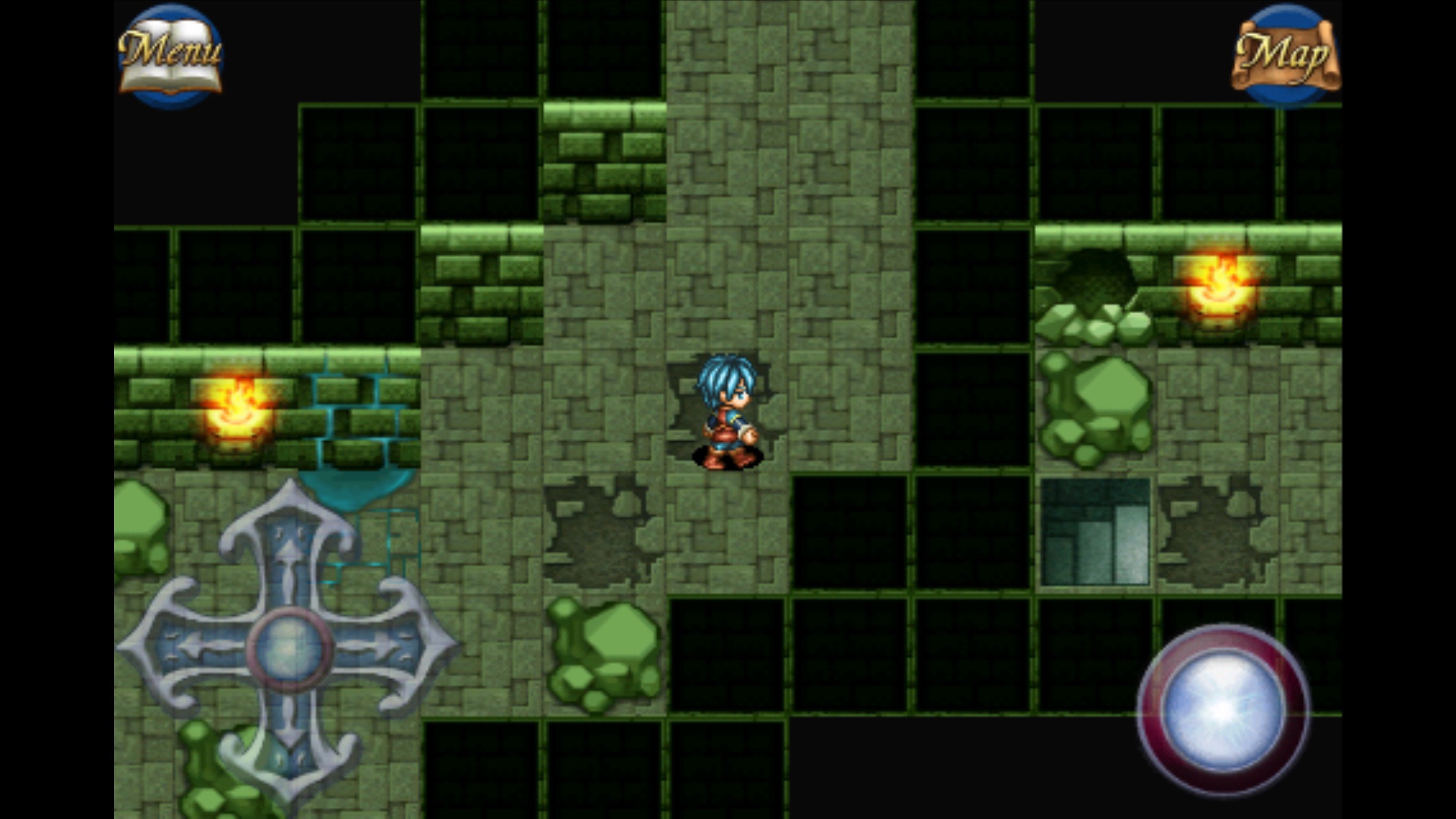
The gameplay is equally simple. This is a very linear game that generally only gives you one possible location to go to next and blocks the road behind you as you go. It almost without fail follows the pattern of sending you to a new town that leads to a new dungeon that points to a new town and so forth until you reach the end of the game. You can open the game’s map near the beginning of the game and pretty much figure out the way you’ll be hopping around the land mass. Battles are basic turn-based affairs with the usual options of fighting, defending, or using a skill of some sort. As far as character customization and development goes, your only real input is in which elemental rings you have each character wear. Wearing the rings will teach skills and magic of that element to the character to supplement their inherent elemental talents. It’s very likely that you’ll fight enough battles to max out everyone in every element, though, so you’re not making very many customization choices here.
I imagine that on a feature phone, this would have been pretty awesome. Stacking it against Square Enix’s feature phone efforts from around that time such as Final Fantasy The After Years, I think EXE-Create’s little game comes out better. In October 2011 on iOS, it was probably a lot less impressive, but still interesting enough. In 2016, however, Alphadia feels very limited. Even worse, it’s a very easy game. Money doesn’t flow well enough for you to buy every equipment upgrade without grinding, but even with slightly outdated gear, you’ll probably be able to auto-battle almost everything including the lion’s share of the bosses. In virtually every meaningful way, you’re better off playing a more recent EXE-Create game. You won’t lose out on much by never playing Alphadia.
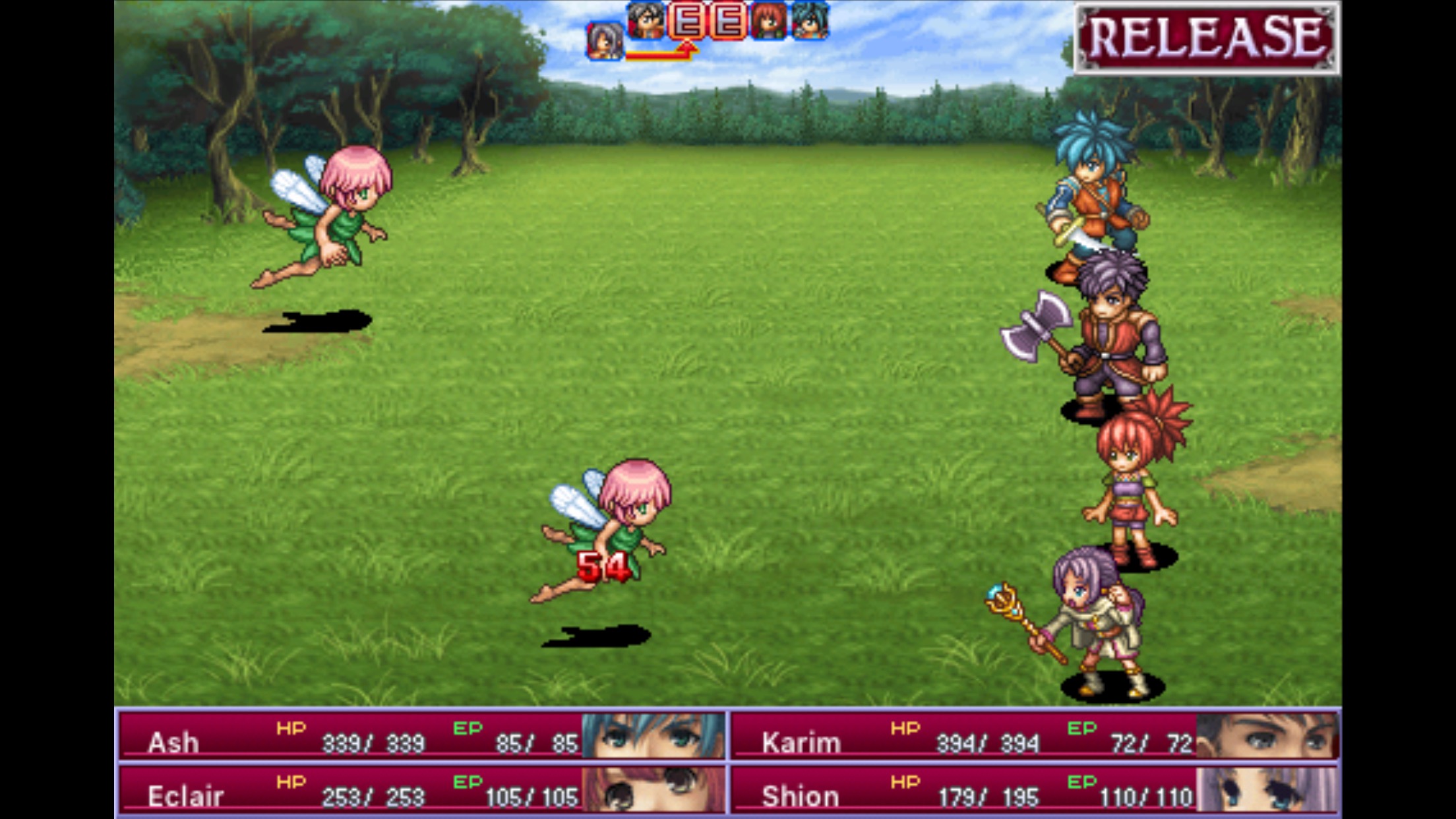
True to EXE-Create’s form, however, I can’t say I had a bad time playing Alphadia again. It wasn’t very thrilling in any sense, but I appreciated the long, somewhat complex dungeon designs. Recent releases from the developer have greatly pulled back on the size and complexity of the dungeon maps, and while I imagine that’s a crowd-pleasing move, I personally enjoyed the more epic undertakings Alphadia threw at me. I also found the pacing to be zippier than recent releases. Characters spend less time talking and the more linear nature of the game means you’re almost always moving, making for a game that plays out at a satisfying speed. The last thing I liked about it is extremely subjective, but I appreciated the more grounded, classic anime-style character designs in Alphadia compared to some of the flashier, more modern, and often garish creations in recent EXE-Create games. I can appreciate that they’re following the trends, but hey, I’m old and make no apologies for that.
I have to reiterate that I can’t strongly recommend replaying Alphadia. With other Kemco developers, there’s a chance that something unique and fun was tried in an earlier title and then was immediately discarded. In EXE-Create’s case, however, you’re just going back to a less-polished version of what they’re still doing today. It’s still enjoyable on a basic level, but you’ll get the same joys and more out of something newer from the developer. Alphadia has blurry graphics, a choppy gameplay engine, simple mechanics, a relatively weak localization, and a boring cast. I’ve certainly seen worse historical curios, and I applaud the developer for continually updating the game whenever a new iOS version or hardware revision breaks it, but those feel like low bars to set. In a world of convenience store cheeseburgers, this is the three-day-old one at the back of the cooler.
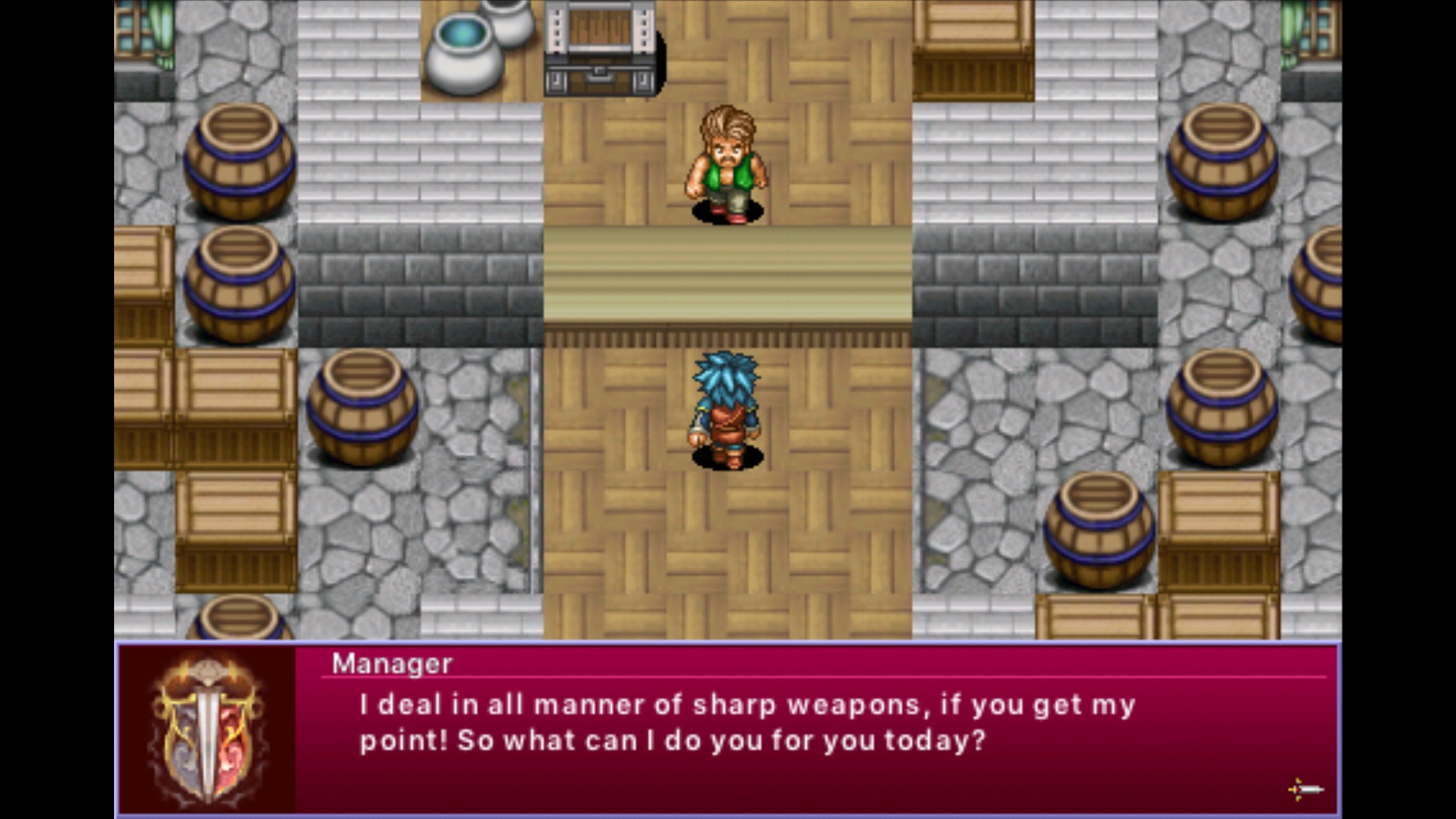
That’s just my take on Alphadia, though. What do you all think? I’d also appreciate some input on the whole Kemco problem. We’re rapidly running out of non-social RPGs from Japan to feature, but I don’t feel like many of Kemco’s older games are worth highlighting. Is one a year too much? Just right? Let me know, please. You can do that by commenting below, posting in the Official RPG Reload Club thread, or by tweeting me at @RPGReload. As for me, I’ll be back next week with the penultimate chapter of our ongoing History of Handheld RPGs feature. Join me next time as we discuss the life, death, and resurrection of the PlayStation Vita. It’s certainly an interesting history. Thanks for reading!
Next Week’s Reload: The History of Handheld RPGs, Part Eleven